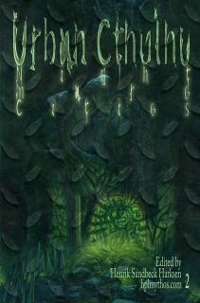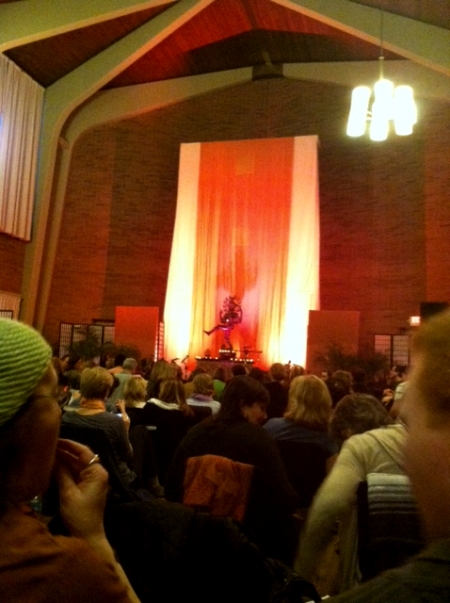Since my last missive, Splinter Fleet Mordiggian, once considered a small and worthy of little notice, has shown a cancerous growth, and many of the more frightening genus of Tyranid have spontaneously arisen within its ranks.
Thanks to Inquisitor Kryptmann’s gambit, this Splinter Fleet spends much of its time combating the Orks. Many clashes have been witness by out remote seers, and with the preponderance of the genestealer genus. While I do not favor either side, for both are xeno abominations which must be purged from the galaxy, it is frightening to report that many Orks have fallen to the genestealers claws, and that this causes me to worry that about wisdom of Kryptmann. If this splinter fleet unlocks the secrets of Ork fury or adds the Orks’ instinctive craftiness to the Tyranids already formidable combat arsenal, I fear for the existence of the Imperium, especially as the splinter fleet has begun the process of autologous diversification, as seen on the Anphelion base. A trygon has emerged where there was none before, as have tervigon specimens, which would account for the rapid increase in the number of termagants that the splinter fleet is able to bring to bear.
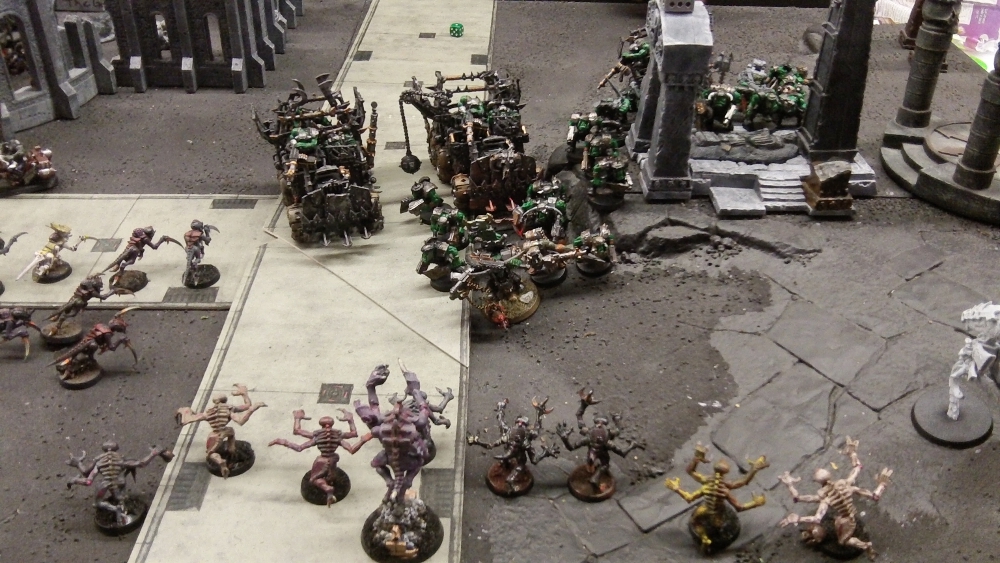
More disturbing it the emergence of Mordiggian’s first Hive Tyrant, seen here with a tyrant guard and zoanthrope just before it destroyed a large number of Ork nob bikers. The terrified astropath that viewed the emergence of the tyranid monstrosity died of fright after transmitting this picture. The terror and destruction that this horror brings with it cannot be underestimated.
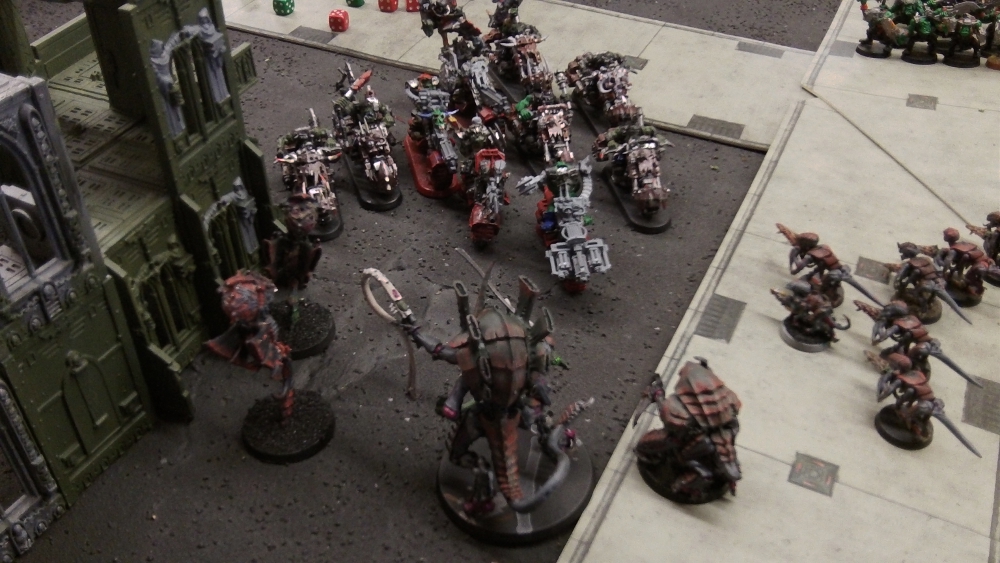
The greatest setback experienced by Mordiggian was an encounter with the Blood Angels, seen here as a brood of zoanthropes attempt to conceal themselves from the Blood Angel Thunderhawk under the strange and undoubtedly warp-tainted skies of skies of Stromsholt. Though defeated, the splinter fleet was not exterminated, and the menace has emerged again, like a disease or destructive weed, from another quarter.
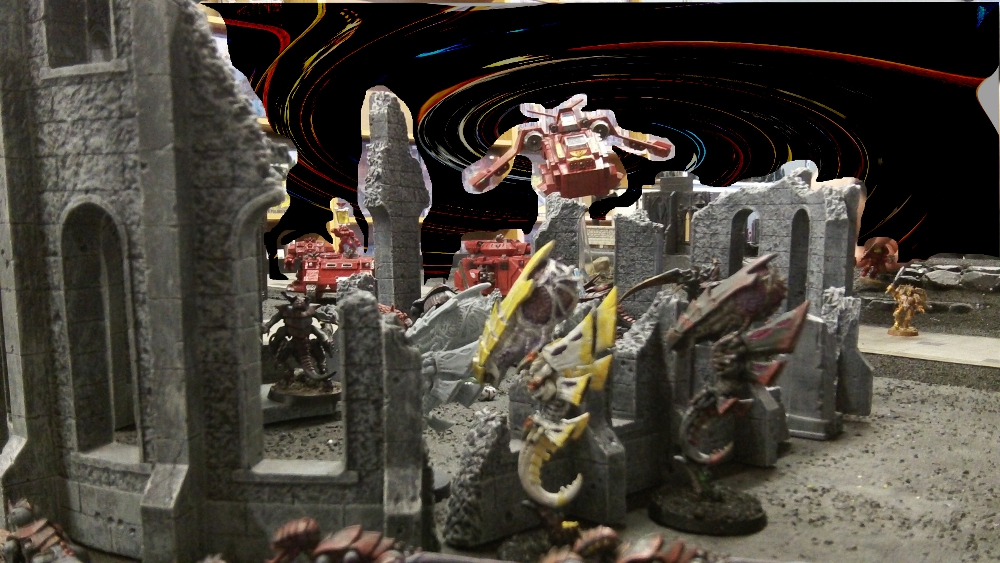
Most recently, the splinter fleet has been seen to use mycetic spores, living meteors which, once grounded, pour forth countless termagants, which in turn pour death into an unidentified Space Marine chapter seen here.
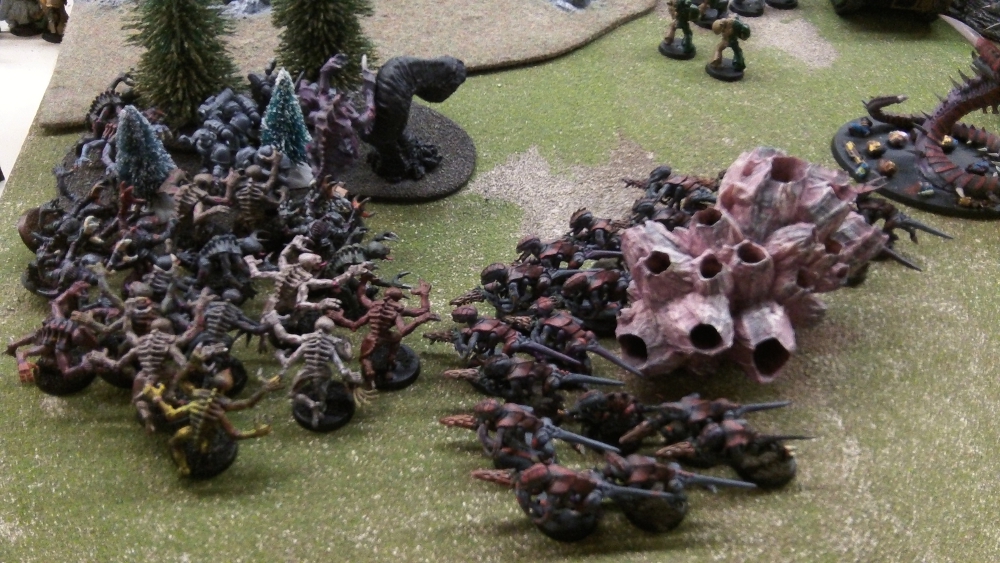
This hive grows at a frightening rate, and I have no wish to be present if it turns its attentions to Eorthscraef, or any of our sector. Once again I humbly beg that the Rune Bearers dispatch a contingent of their extraordinary warriors to exterminate this peril before the lives of more Imperial citizens are endangered, their property destroyed, and their usefulness to the Emperor crippled or eliminated altogether. We shall, of course, defer to whatever judgement your worthiness decrees.
May the Holy Emperor guide your hand in delivering us from this frightful menace,
Johann of Eorthscraef
